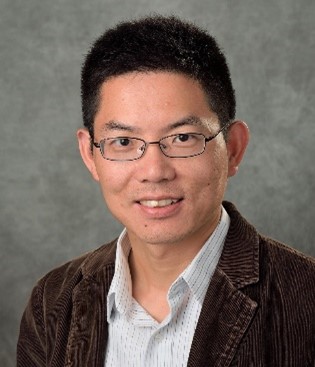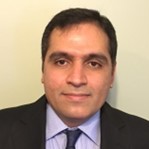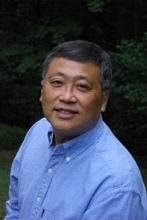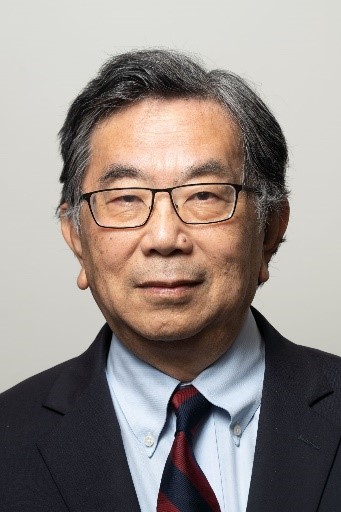Special Events
ASME DSCD Women’s Luncheon
Special Session TuLT1Date: Tuesday October 3rd
Time: 12:30-1:30 pm
Location: Azure
Session Organizers
Minghui Zheng, University at Buffalo
May-Win Thein, University of New Hampshire
Description
All women attendees of the Modeling, Estimation and Control Conference are cordially invited to attend the
Women’s Luncheon funded by the Dynamic Systems & Control Division of ASME. It will feature short talks and
interactive activities. It is a great opportunity to network, share experiences and stories in research and
careers, foster collaboration, and build connections with the growing group of female researchers in dynamics
and control.
ASME Dynamic Systems and Control Division: Past, Present, and Future
Special Session, WeEVT2Date: Wednesday, October 4th
Time: 4:00-5:30 PM
Location: Cobalt in Tahoe Blue Center
Also Online : Zoom Link
Session Organizers
Jingang Yi, Rutgers University
May-Win Thein, University of New Hampshire
Description
This year marks the 80th anniversary for the ASME Dynamic Systems and Control Division (DSCD).
The purpose of this special session is to bring together a group of Division researchers in academia,
industry, and government agencies and labs to trace the 80-year history of the DSCD, highlight significant
events, show how the Division has evolved and grown over the years, and also provide insight and perspectives
into the future technology developments and Division directions in system dynamics and control.
Moderator

Dr. Xiaobo Tan is an MSU Foundation Professor and the Richard M. Hong Endowed Chair Professor in Electrical and Computer Engineering at Michigan State University (MSU). He received his bachelor's and master's degrees in automatic control from Tsinghua University, Beijing, China, in 1995, 1998, respectively, and his Ph.D. in electrical and computer engineering (ECE) from the University of Maryland in 2002. His research interests include bio-inspired robots, soft sensors and actuators, and dynamic modeling, control and applications of robotic systems. In particular, his group has developed and field-tested autonomous underwater and surface robots for mobile sensing applications. He has published over 300 papers and been awarded five US patents in these areas. Dr. Tan is a Fellow of IEEE and ASME. He is a recipient of the NSF CAREER Award (2006), MSU Teacher-Scholar Award (2010), MSU College of Engineering Withrow Distinguished Scholar Award (2018), Distinguished Alumni Award from the ECE Department at University of Maryland (2018), MSU William J. Beal Outstanding Faculty Award (2023), and multiple best paper awards. Dr. Tan is keen to integrate his research with educational and outreach activities, and has served as Director of an NSF-funded Research Experiences for Teachers (RET) Site program at MSU from 2009 – 2016, Curator of a robotic fish exhibit at MSU Museum in 2016-2017, and PI of a recently awarded NSF Research Traineeship program on water equity and sustainability.
Speaker/Panelists

Dr. Ali Borhan is a connected and intelligent systems manager at Cummins Inc. with solid background and experience in control, machine learning and AI software and digital features development and applications. In his current position at Cummins Research and Technology, he is leading new product development projects in the area of connectivity, automation and energy systems including next generation control, machine learning and AI features to enable resilient and efficient path to decarbonization of the commercial vehicles and freight transportation with electrification, V2X connectivity and automation. He has over a decade of experience in controls and connectivity software product development and leadership within industry. He has a Ph.D. in dynamic systems and control from Clemson University, SC, USA and an M.B.A. degree from Indiana University, IN, USA. He has published more than 50 patents and research articles, is an Associated Editor for the SAE Journal of Connected and Automated Vehicles and a senior IEEE Member.

Dr. Santosh Devasia is a Professor of Mechanical Engineering (ME) at the University of Washington (UW), Seattle where he joined in 2000. Prior to that, he was a faculty member at the University of Utah from 2014-2000. Currently, he directs the Precision Controls Laboratory, and his research interests include theory for iterative learning and information propagation for distributed systems, and applications in human-machine interaction, manufacturing, and robotics. He received his B.Tech. (Hons) from the Indian Institute of Technology, Kharagpur, India, in 1988, and the M.S. and Ph.D. degrees in Mechanical Engineering from the University of California at Santa Barbara in 1990 and 1993 respectively. He is a fellow of the ASME and IEEE societies. A detailed CV is available at http://faculty.washington.edu/devasia/. In ASME, he served on the DSCD Executive Committee during 2017-2022, including serving as the Division Chair during 2020-2021. He has also served the Division in multiple other capacities, including the American Automatic Control Council Board of Directors (ASME Director), IEEE/ASME Transactions on Mechatronics Management Committee, DSCD Honors and Awards Committee, and the editorial board of ASME Journal of Dynamic Systems, Measurement and Control. He initiated and helped launch of the new journal ASME Letters in Dynamic Systems and Control. He was the General Chair of the 2020 American Control Conference, and the General Chair of the 2023 IEEE/ASME International Conference on Advanced Intelligent Mechatronics.

Dr. Eduardo Misawa is currently with the National Science Foundation (NSF) as a Senior Advisor in the Office of Director and Scientific Integrity Official for the Agency. He has been a member and has been involved with the professional societies in the field of systems and control, such as in leadership positions in the ASME/DSCD, IEEE/CSS and AACC. He has a B.Sc. and M.Sc. degrees from University of São Paulo and Ph.D. degree from the Massachusetts Institute of Technology. He held positions at NSF as a program director and several management positions in the Directorate for Engineering, Directorate for Computer and Information Sciences, Directorate for Mathematical and Physical Sciences, and Directorate for Education and Human Resources, before joining the Office of the Director at the NSF. His research and teaching experience includes Nonlinear Dynamics, Dynamics and Control, Nanotechnology, Precision Engineering, Vehicle Dynamics, Bioinformatics, Biotechnology, Biomedical Engineering, Computational and Data Sciences, Machine Learning, Scientific Integrity, and Science and Technology Policy.

Dr. Stephanie Stockar is an Assistant Professor in the Department of Mechanical and Aerospace Engineering at The Ohio State University. She earned her BS and MS in Mechanical Engineering from the Swiss Federal Institute of Technology (ETH) Zurich, Switzerland in 2007 and 2010, respectively, and obtained her PhD in Mechanical Engineering from The Ohio State University in 2013. Before joining the MAE department at OSU in 2019, she was an Assistant Professor of Mechanical Engineering at Penn State University. Dr. Stockar conducts research in the area of optimal control of energy systems with applications to automotive systems and the built environment. Her research approach hinges upon the multidisciplinary integration of thermo-fluid sciences with dynamic systems, modeling, optimization and control theory. Dr. Stockar’s work has been funded by Ford Motor Company, Stellantis, ARPA-E and the National Science Foundation (NSF). Dr. Stockar is a 2021 NSF CAREER Award recipient, earned the SAE Ralph Teetor Educational Award (2021), and the Ralph E. Powe Junior Faculty Enhancement Award in Engineering and Applied Science (2020). She received the OSU College of Engineering Lumley Research Award in 2022 for her research in broad areas of modeling, optimization, and control of nonlinear and infinite-dimensional systems.

Dr. Masayoshi Tomizuka received his Ph. D. degree in Mechanical Engineering from the Massachusetts Institute of Technology in February 1974. In 1974, he joined the faculty of the Department of Mechanical Engineering at the University of California at Berkeley, where he currently holds the Cheryl and John Neerhout, Jr., Distinguished Professorship Chair and serves as Associate Dean for the Faculty in the College of Engineering. His current research interests are optimal and adaptive control, digital control, motion control, and control problems related to robotics and manufacturing, vehicles and mechatronic systems. He served as Program Director of the Dynamic Systems and Control Program of the National Science Foundation (2002-2004). He has supervised about 130 Ph. D. students to completion. He served as President of the American Automatic Control Council (AACC) (1998-99). He is Honorary Member of the ASME, Life Fellow IEEE, and Fellow of IFAC and the Society of Manufacturing Engineers (SME). He is the recipient of the J-DSMC Best Paper Award (1995, 2010), the DSCD Outstanding Investigator Award (1996), the Charles Russ Richards Memorial Award (ASME, 1997), the Rufus Oldenburger Medal (ASME, 2002), the John R. Ragazzini Award (AACC, 2006), the Richard Bellman Control Heritage Award (AACC, 2018), the Honda Medal (ASME, 2019) and the Nichols Medal (IFAC, 2020). He is a member of the National Academy of Engineering.
